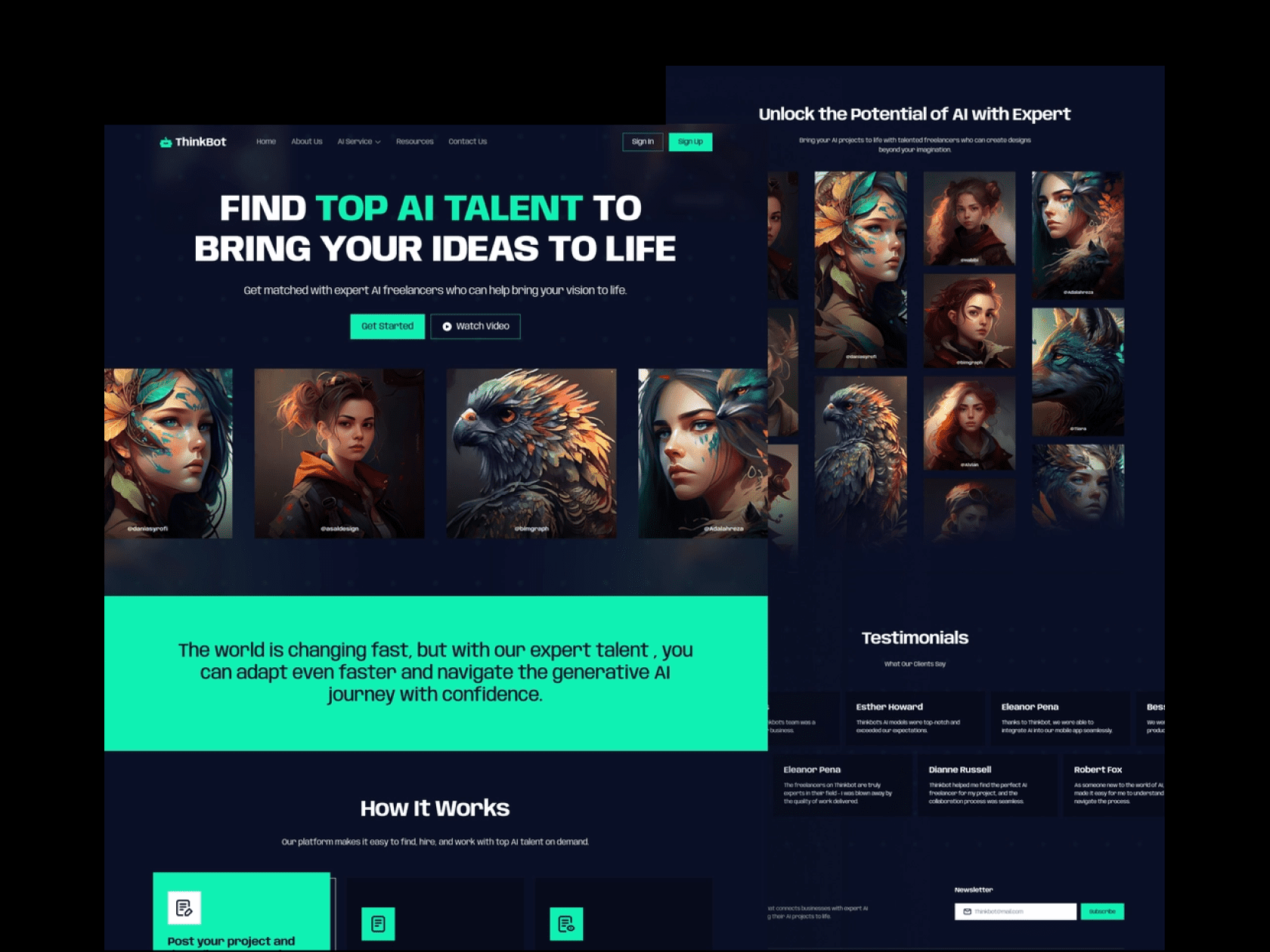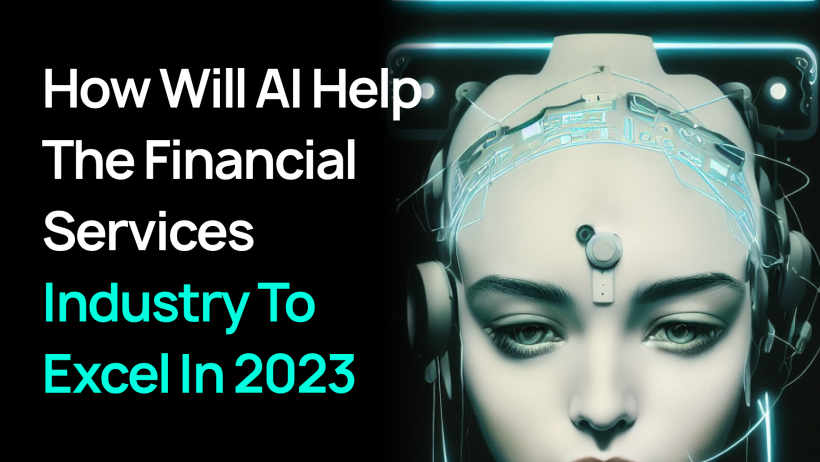Do you know that the AI market is expanding at a CAGR of 38.1% between 2022 to 2030? This means that artificial intelligence today is no longer just another trend for developers of entertainment applications, but an essential feature that helps to effectively solve modern business problems.
Indeed, artificial intelligence (AI) has been one of the most powerful tools for business development for many years. This technology can bring the most significant improvements to companies working with huge streams of information, helping them perform routine operations, process data with lightning-fast speed, and provide analytics in real time.
Thanks to this, companies get an excellent basis for making the right decisions: numbers, conclusions, and recommendations, which together allow them to improve and develop business processes, as well as increase their profitability.
Let’s talk in more detail about the advantages of artificial intelligence for business in 2023, as well as the overall future of Fintech in the context of the AI introduction below.

Protecting Data And Predicting Anomalies
Although artificial intelligence has long been used by companies in the solutions of business intelligence to quickly generate analytical reports based on current data, this technology also finds active use in the fight against the leakage of these data.
In particular, AI-based security tools can provide invaluable assistance in preventing network attacks, and can be used as an enhancing measure to traditional firewalls, which can recognize only well-known threats.
Thus, companies receive unprecedented protection of their information, helping their employees from IT departments to respond to abnormal activities within the network perimeter in time.
Seamless Customer Service
Today, the best user experience is ensured by not only excellent customer support staff but also by the personalization of services. However, manually personalizing the interaction with each client is very difficult, expensive, and time-consuming.
In turn, artificial intelligence can quickly and cost-effectively cope with this task, adapting their services and “products that you may also be interested in” lists for customers based on their previous interaction with the company.
Reducing Operational Expenses
What if not artificial intelligence can replace manual labor when it comes to repetitive tasks that do not require creativity? Indeed, even today, many work processes that were previously performed by live employees and were often accompanied by certain risks (such as the human factor, the use of outdated data, errors in calculations, etc.) can become the responsibility of solutions based on artificial intelligence.
.png)
Thus, companies can reduce the costs associated with the implementation of routine business processes and provide an opportunity for their employees to be involved in something more interesting.
The Role of Artificial Intelligence in the Future of Fintech
Let's delve into the business benefits and prospects that artificial intelligence can bring to companies from the FinTech niche.
AI and Customer Service
We have already talked above about the personalization opportunities that artificial intelligence provides when businesses interact with their customers, but this technology can bring no less benefit when implementing customer support services.
Indeed, why make your customers languish for minutes of waiting until they get through to the line of one of your live support employees if you can give them the opportunity to get an answer to their problem right here and now, in an AI chatbot? Moreover, such chatbots will never take a vacation or go on a day off, which means that they will be available to your clients 24/7.

Artificial Intelligence and Fraud Detection
In addition to the network security that modern AI tools can provide, you can also get protection for your business through the implementation of specialized software.
In particular, we are talking about tools that can ensure it:
- fraud detection
- KYC
Thus, if your business involves online transactions, these Fintech AI solutions — especially those powered by fintech solutions development — will bring you unprecedented benefits and ensure your reliability in the eyes of your customers.
AI and Fintech Trends
Why Fintech is the future? Then, you may be interested in learning more about what AI-based solutions can bring benefit to your business. The most promising of them we presented are below.
- Machine learning. Machine learning is a field of artificial intelligence that is commonly used to generate analytical and predictive insights that are valuable to businesses. Thus, instead of spending days and sometimes months creating reports and forecasts based on often outdated data, you can get the information you need in minutes and without much effort.
- Natural language processing (NLP). Natural language processing is another branch of artificial intelligence that translates human speech into one that can be understood by machines and, based on this, helps them provide relevant feedback. Typically, such solutions are used to implement voice search as well as intelligent chatbots, providing human-like interaction in digital reality.
- Robotic process automation (RPA). RPA is a technology that enables the delegation of routine and repetitive processes to machines. Typically, RPA-based solutions are used by finance companies to insure them against mistakes and make things easier for their live employees.
- Blockchain. As a standalone technology, blockchain (a distributed digital ledger that enables secure and transparent transactions without the involvement of third parties) can be used in conjunction with artificial intelligence to analyze data, automate processes, and create smart contracts faster and more effectively.

What Are the Dangers of Using AI for FaaS Companies?
Along with all the possible benefits, you must understand that artificial intelligence for FaaS companies is not a holy grail. That is why we also propose to consider the possible risks that you may face after implementing AI solutions in your business processes.
Bias in the Data Used
Since data rarely has any value on its own, AI solutions are often used by companies to draw conclusions from them.
It often happens that these conclusions turn out to be either partially or completely wrong due to insufficient data sampling or the incorrectness of the model that processes them. In any case, neither one or the other situation is beneficial for business.

Problems with the Public Availability of Data Used in AI Models
Often AI services provided by large digital giants like Amazon and Google apply user data in their models available for all their clients.
Thus, from the data that was collected by a particular company for its specific business needs, they become publicly available. This, in turn, can reduce the competitiveness of a business in the long run, since the models that a specific company uses today can benefit its competitors after some time.
Standard Compliance Issues in the Niche You Work in
Your business niche may require compliance with more stringent standards for user data security than the AI-based services that you use can provide.
Therefore, you will either have to agree on the possibility of using your customer data every time you or they access such a service or limit the use of AI-based services only in those areas that in no way violate anyone's privacy.
Final Thoughts
As you can see, the use of artificial intelligence in business provides great opportunities for the development and improvement of the efficiency of internal operations.
And this is not just another Fintech trend, but a real need in the conditions in which companies operate now. Also, artificial intelligence can be used as a means of increasing competitiveness and profitability through the automation of routine processes.
If you are looking for reliable IT experts to help you integrate AI into your workflows to the greatest advantage of your business, feel free to contact us.

